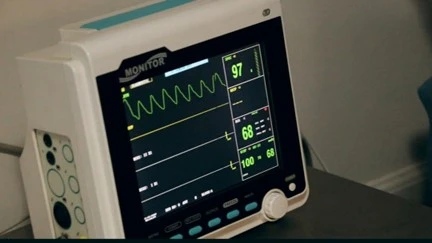Most people don't really think much about how many times their heart beats per minute unless they have a medical issue. But it's important to know your normal heart rate to monitor your overall wellness. So you may wonder, "What's a normal heart rate?"
We'll answer that question in this article. We'll also take a look at some top ways to measure your heart rate and some factors that affect it.
Normal Heart Rates
Your heart rate is a measurement of how many times your heart beats per minute. The important measurement is your resting heart rate - how fast your heart beats when you're in a relaxed state.
Knowing your resting heart rate allows you to monitor your heart health. What's considered a normal heart rate differs depending on age.
Adults
The normal average resting heart rate for a healthy adult is 60 to 100 beats per minute (bpm). The heart is working efficiently in this range.
Adults who are 18 years of age or older with a resting heart rate of 80 bpm or higher could have a higher risk of developing heart disease. It's also a concern if your heart rate is consistently below 60 bpm.
If your heart rate is consistently 130 bpm or more, you need emergency medical attention. You may be showing symptoms of a serious underlying medical condition.
Children
Children's normal resting heart rate range depends on their age.
Children ages one to five have a normal resting heart rate of 80 bpm to 130 bpm. Children ages six to 15 have a normal resting heart rate of 70 bpm to 100 bpm.
How to Measure Your Heart Rate
There are some simple top tips that you can follow to measure your heart rate.
Wrist
The easiest place to measure the heart rate is on the wrist just below the base of your thumb, right over your radial artery.
Place your index and middle fingers between the tendon and bone at the base of your thumb and count the number of beats you feel in 15 seconds.
Once you count that number, multiply it by four to count the amount of times your heart beats in one minute.
Neck
You can also count your heart rate on your neck. Place your index and middle finger in the hollow beside your windpipe or Adam's apple. Then follow the same steps mentioned above to calculate your heart rate.
Factors That Affect Heart Rate
There are several factors that affect your heart rate. They include:
- Obesity
- Body position
- Medications
- Gender
- Age
- Eating habits
- Medical conditions
- Genetics
Get Discounted Medications for Your Heart Health
If you have any heart issues that cause your heart rate to remain elevated, you will need to take medication to lower it. These include beta-blockers like metoprolol or atenolol, or calcium channel blockers like amlodipine or cardizem. But prescriptions for heart problems can be expensive, and it can be taxing to search for cheaper alternatives at your pharmacy. Saving money is important to get the medications you need.
That's why RxLess provides a free discount card to help you save on the cost of your medications. This discount card is accepted at over 70,000 pharmacies nationwide, like CVS, Walgreens, and Rite Aid. Visit our website today to search for your medication and access impressive savings on your prescription.

















